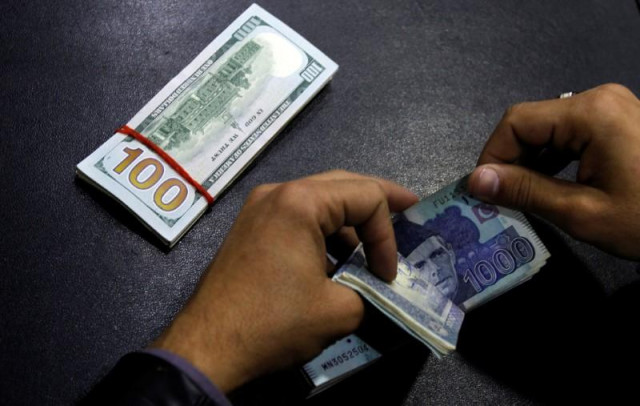Foreign exchange: SBP's reserves slip by $8.1m to $10.23b
Central bank cites no reason for the decrease

Central bank cites no reason for increase. PHOTO: REUTERS
On August 24, the foreign currency reserves held by the State Bank of Pakistan (SBP) were recorded at $10,226.7 million, down $8.1 million compared with $10,234.8 million in the previous week.
Overall, liquid foreign reserves held by the country, including net reserves held by banks other than the SBP, stood at $16,685.1 million. Net reserves held by banks amounted to $6,458.4 million.
Four weeks ago, China reportedly agreed to immediately give a loan of $2 billion to Pakistan, a move meant to arrest the slide in foreign currency reserves and provide much-needed breathing space for the new government.
Of the agreed amount, $1 billion had already been transferred to the central bank account. According to officials in the Ministry of Finance, the loan will be categorised as official bilateral inflow.
Foreign exchange: SBP's reserves increase $82.2m to $10.23b
Earlier, the reserves had dipped to an alarmingly low level at $9.06 billion, forcing the central bank to let the rupee depreciate massively on four separate occasions since December 2017, and sparking concerns about the country's ability to finance a hefty import bill as well as meet debt obligations in coming months.
In April, the SBP's reserves had increased $593 million due to official inflows.
A few months ago, the foreign currency reserves surged due to official inflows including $622 million from the Asian Development Bank (ADB) and $106 million from the World Bank. The SBP also received $350 million under the Coalition Support Fund (CSF).
In January, the SBP made a $500-million loan repayment to the State Administration of Foreign Exchange (SAFE), China.
Pakistan also raised $2.5 billion in November 2017 by floating dollar-denominated bonds in the international market in a bid to shore up official reserves.



















COMMENTS
Comments are moderated and generally will be posted if they are on-topic and not abusive.
For more information, please see our Comments FAQ